A week before my grandmother passed away, I stood on the banks of a holy river in Kathmandu and watched a son and father cremate their mother and wife. The raw emotion and despondency I saw on their faces was crushing.
When my father called with the news of my grandmother’s death, I sat and cried on the balcony of my guesthouse, thinking about her life and legacy. I miss her, and I grieve the separation death brought. However, I know she is with Jesus. She is walking with her Savior whom she loved so much and taught her children to love.
I thought back to the cremation I observed a week earlier, and my heart fell. Watching Hindu families cremate their loved ones is markedly different than attending funerals of believers. At funerals for Christians, there are tears and mourning, but there is comfort that the loved one is with Christ and no longer in pain.
For non-Christians, there is no certainty their loved ones are in a better place. The Hindus and Buddhists in Nepal believe in reincarnation, and being good is the only chance they have at a better next life. They believe perhaps eventually they can reach nirvana, but actual knowledge of what’s next after death is unattainable. They won’t see their loved ones again, and the separation is poignant and utterly devastating.
A Heart That Burns with Urgency
For millions in Nepal, this is their reality. They face an eternal separation from their loved ones. Even more harrowing is their eternal separation from God. That should grieve me far more than I allow it to. It’s difficult to think with such finality and in such harsh terms, but the message of the Bible is clear—those who do not profess Christ as Lord will not spend eternity in heaven with him (John 3:3, 36).
That truth should motivate us to persistently and unabashedly proclaim the good news that there is a hope in the afterlife, and it’s in our grasp because of Jesus’s sacrificial death. In my own life, it was the anguish of a man separated from his lifelong mate that was one of many wake-up calls the Lord has given me.
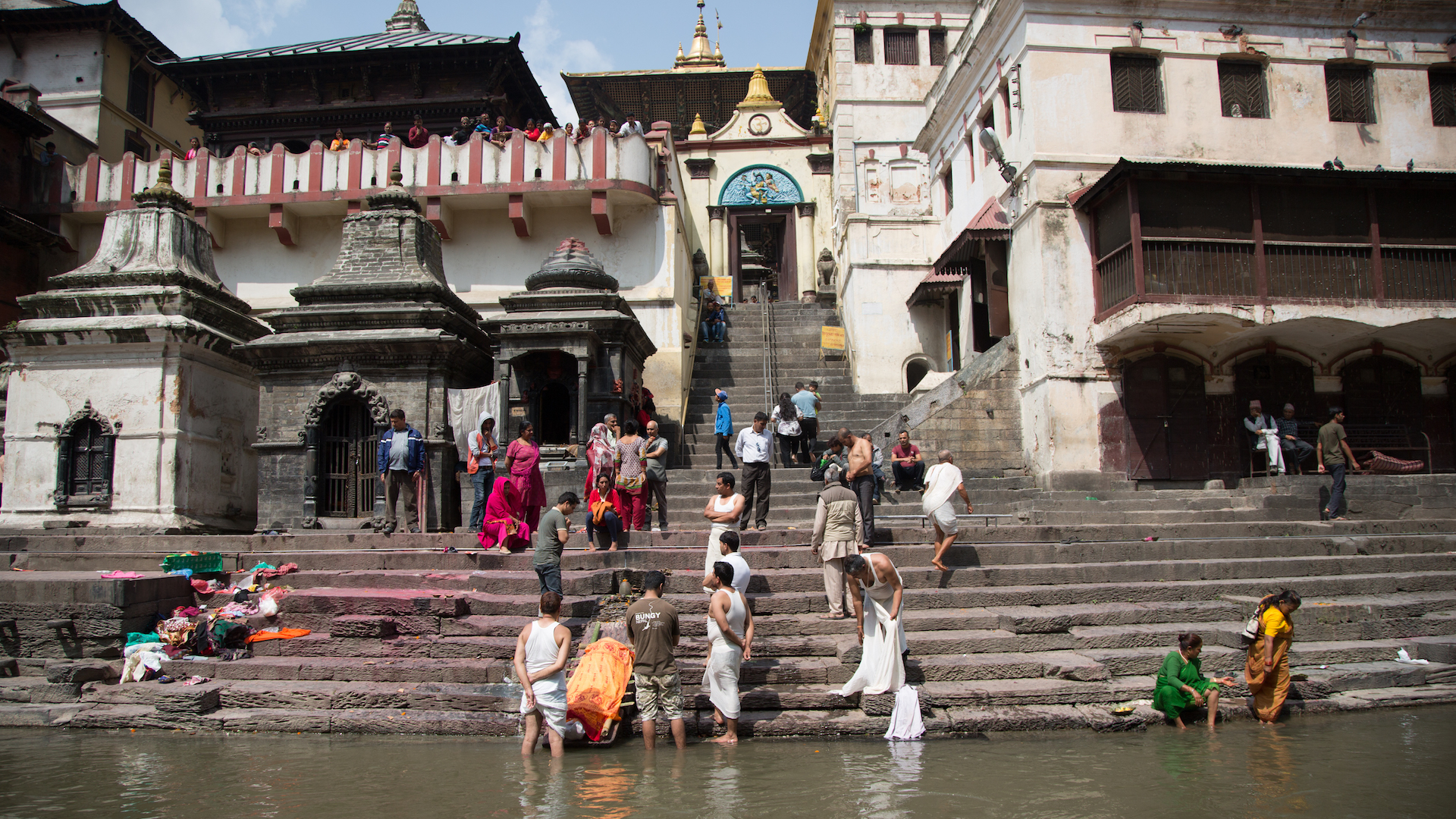
The Somber Send-Off
It’s a dream of Hindus in Kathmandu to be cremated in Pashupatinath Temple, which is considered a sacred site. It’s a UNESCO World Heritage site and one of the most prominent temples in South Asia. The temple’s patron, Pashupati, is believed to be the Hindu god Shiva incarnated.
Loved ones initiate the cremation and its associated funeral rites to help the deceased make one last sacrifice to god. They bring the body to the banks of the Bagmati River, which runs through the temple complex. Bodies are washed in the river prior to being cremated. Hindus believe the water spiritually and physically cleanses the dead and living.
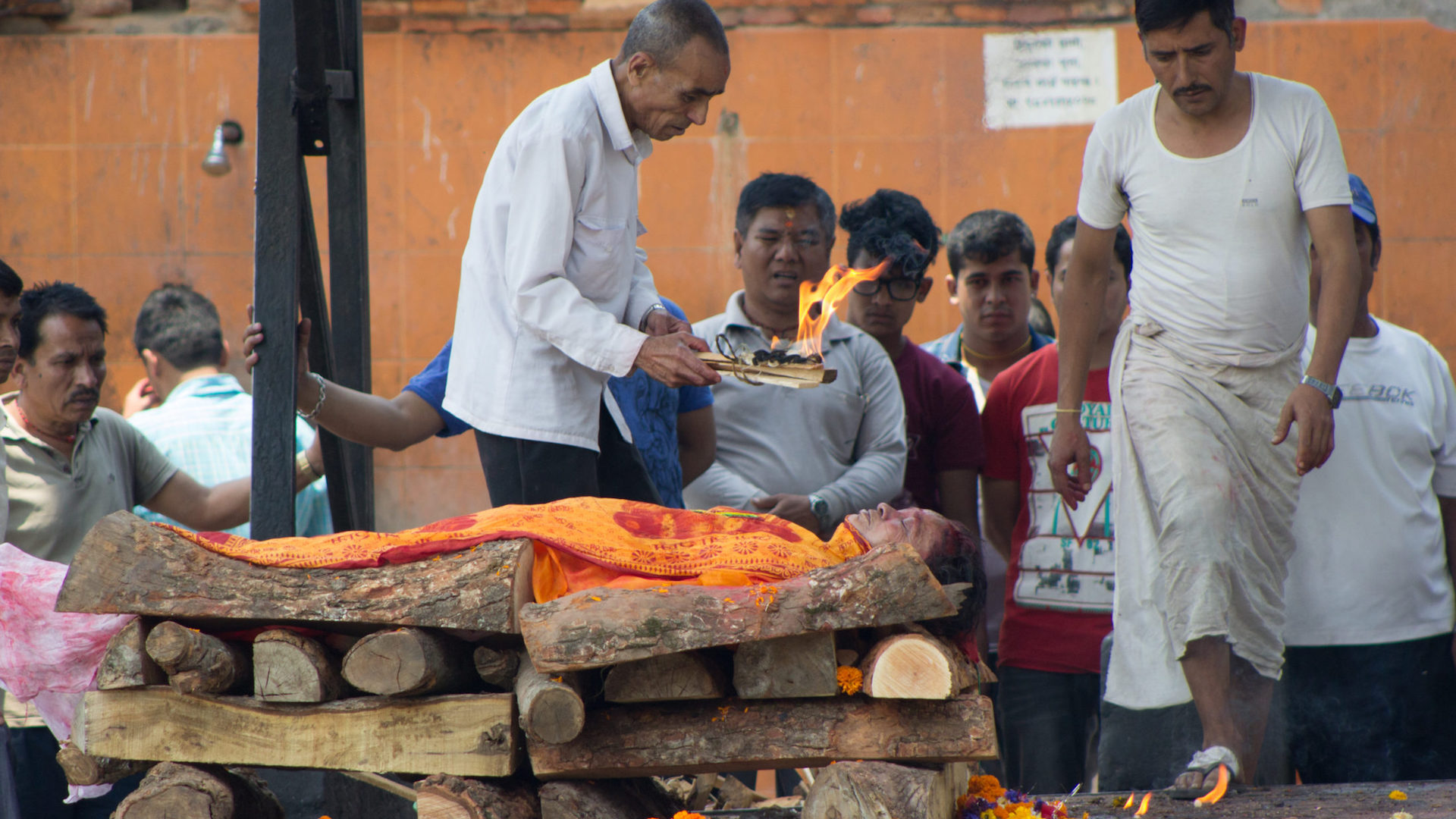
Water is dropped on the deceased’s mouth to confirm they are dead. Their toes are tied together. Red dye, known as a tilak, is placed on their forehead.
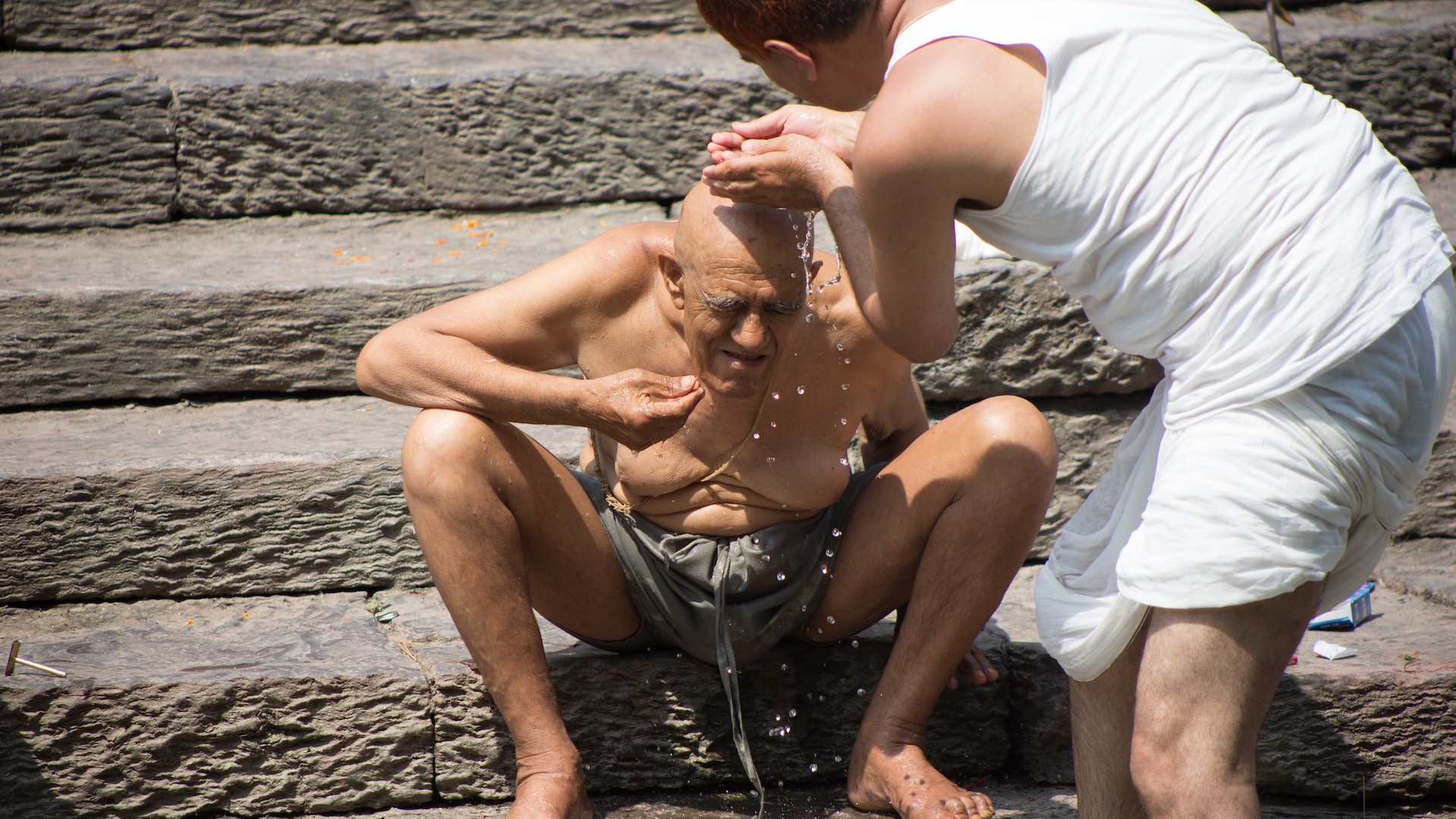 Next of kin participating in the cremation bathe in the water as part of the cleansing ceremony. Men shave their beards and heads—save for a small strand on the back of their head—on the steps on the banks of the river. Shaving one’s hair is a demonstration of grief and sacrificing a form of vanity.
Next of kin participating in the cremation bathe in the water as part of the cleansing ceremony. Men shave their beards and heads—save for a small strand on the back of their head—on the steps on the banks of the river. Shaving one’s hair is a demonstration of grief and sacrificing a form of vanity.
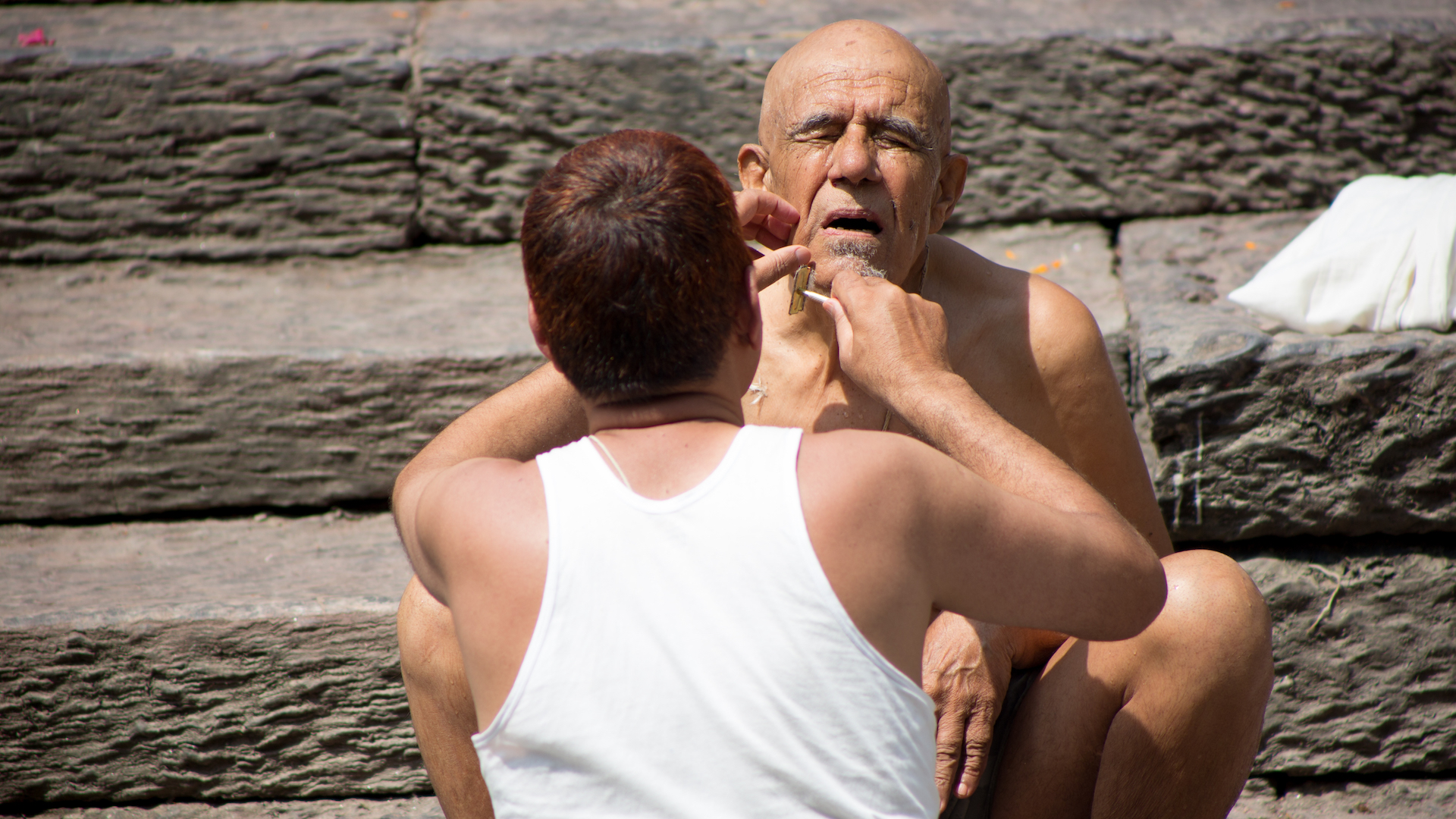 After the body is cleansed in the river, it is carried to a wooden pyre. Male family members and temple attendants walk around the body, reciting prayers. Other family members watch from nearby.
After the body is cleansed in the river, it is carried to a wooden pyre. Male family members and temple attendants walk around the body, reciting prayers. Other family members watch from nearby.
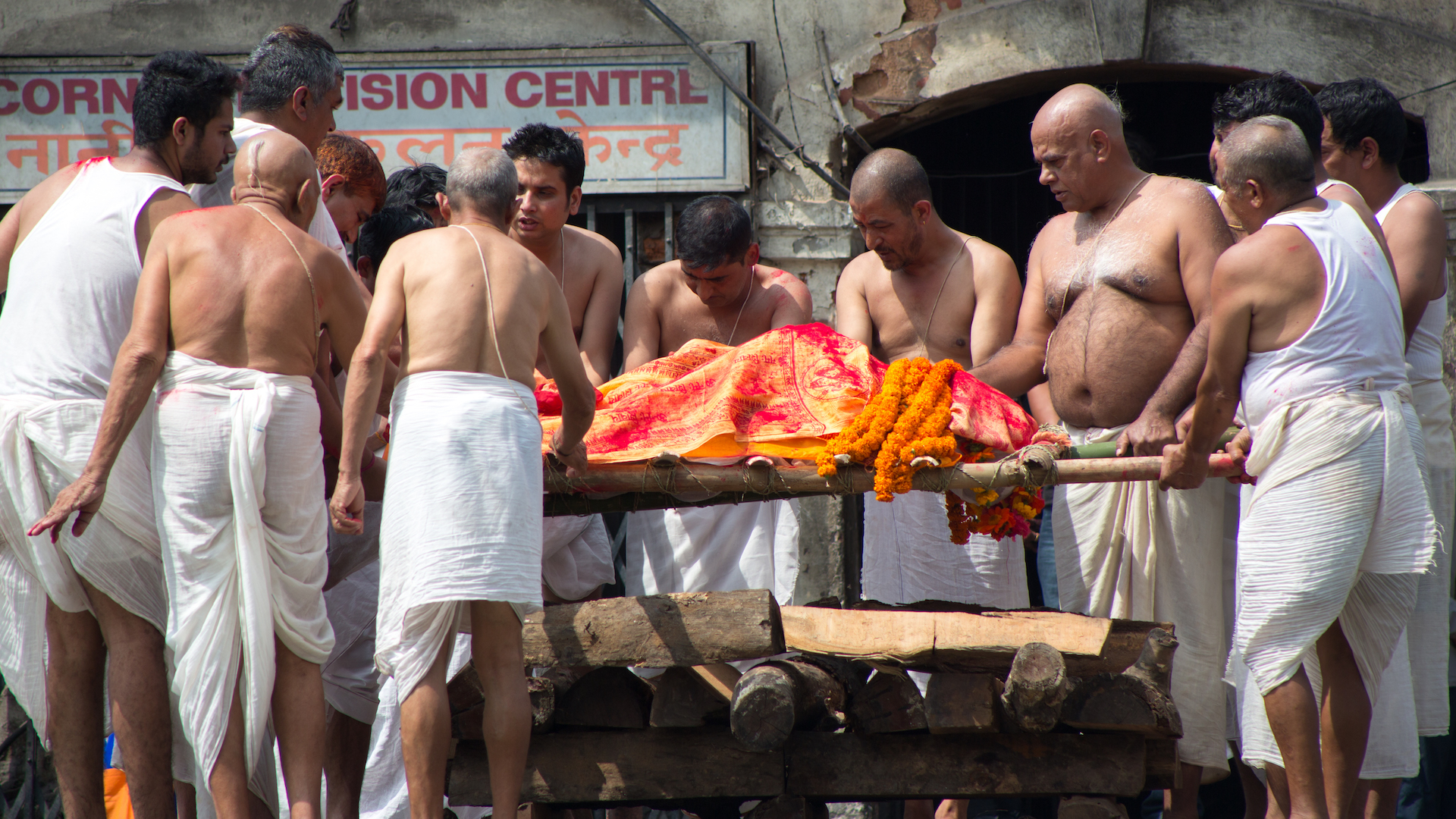 Attendants place grass and straw on top of the body, then the deceased’s first son lights a fire in the mouth of the body. The circling of the body continues for a few more rotations. Here, the husband and son touch their head to their loved one’s feet as a sign of devotion and respect.
Attendants place grass and straw on top of the body, then the deceased’s first son lights a fire in the mouth of the body. The circling of the body continues for a few more rotations. Here, the husband and son touch their head to their loved one’s feet as a sign of devotion and respect.
An attendant tends to the burning body after the family has paid their respects. The ashes are kept in an urn and later released into a river.
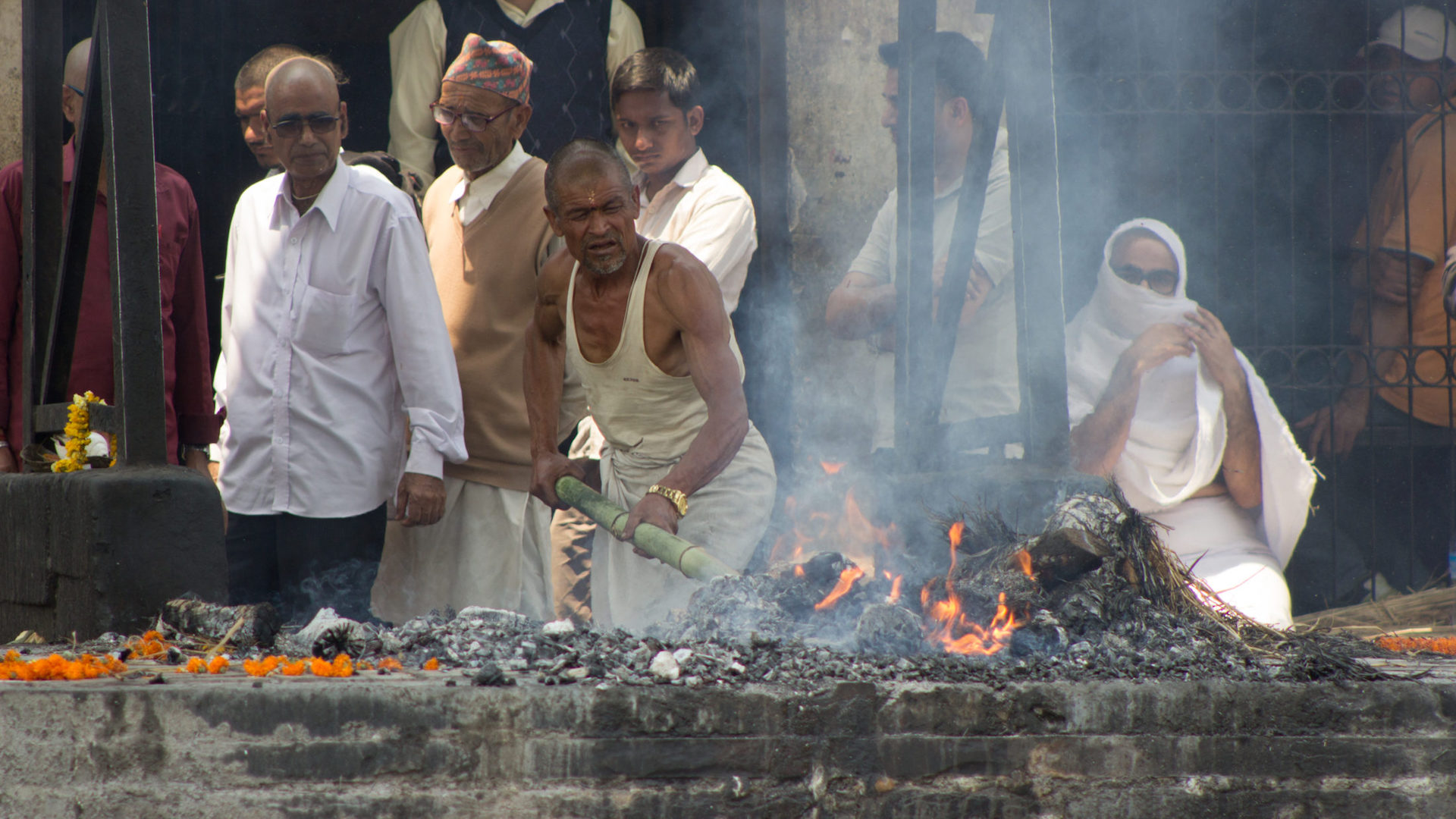
Who Will Tell Them?
I walked away from Pashupatinath Temple with a heaviness in my heart. I’ve been praying someone will tell the son and father whom I witnessed burning their loved one that Jesus died in their place. I also pray we all will be faithful to share the gospel with those in our lives who don’t profess Christ.
There are limitless opportunities to serve among people whose hope lies in the scattering of their ashes over a river. Find your place in God’s mission and join in the work of disciple making and church planting among the unreached for the glory of God.
Caroline Anderson is a writer and photographer with the IMB. She currently lives in Southeast Asia. Her childhood in Asia consisted of two important ingredients: braving hot chili peppers and telling people about Jesus.
Andrew Rivers and his wife serve with the IMB in Southeast Asia where he works as a videographer.

